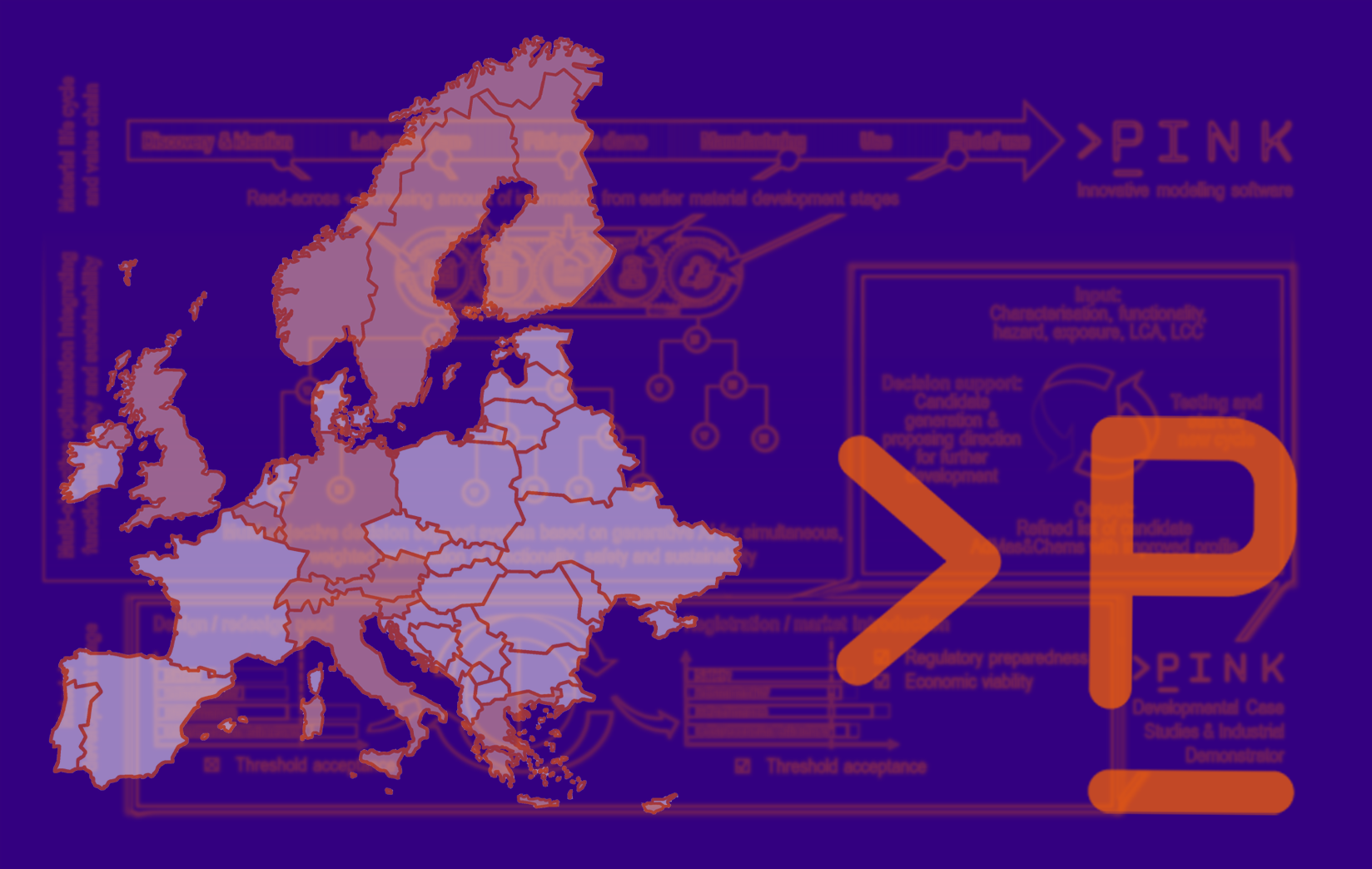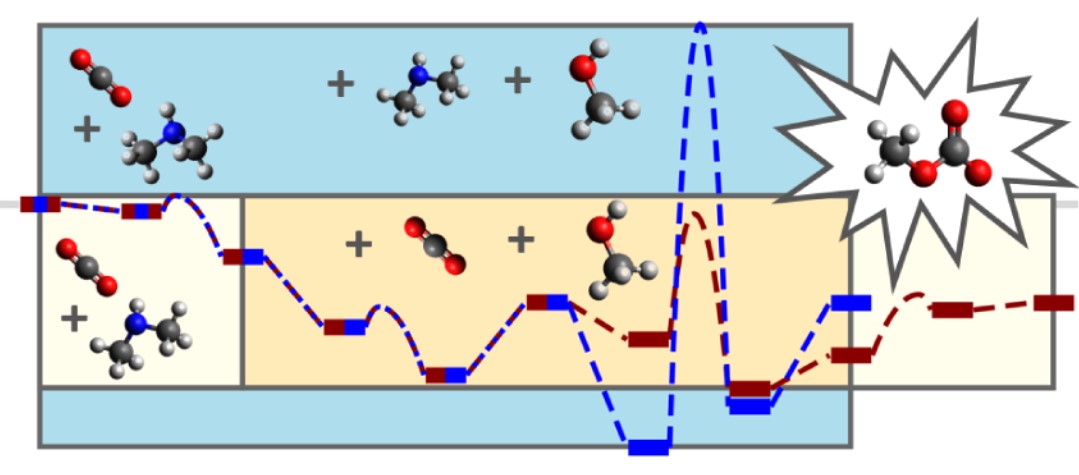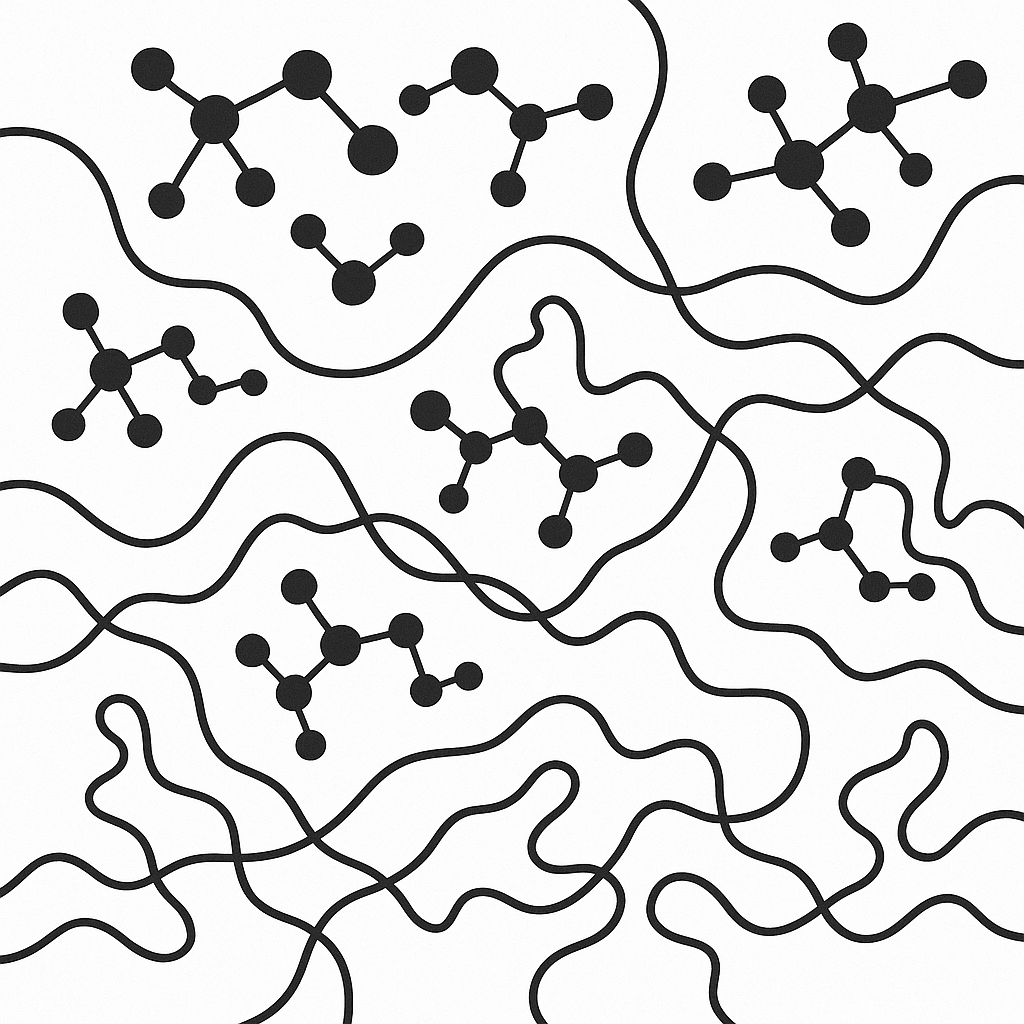SSbD Networking and training at MaterialsWeek 2024
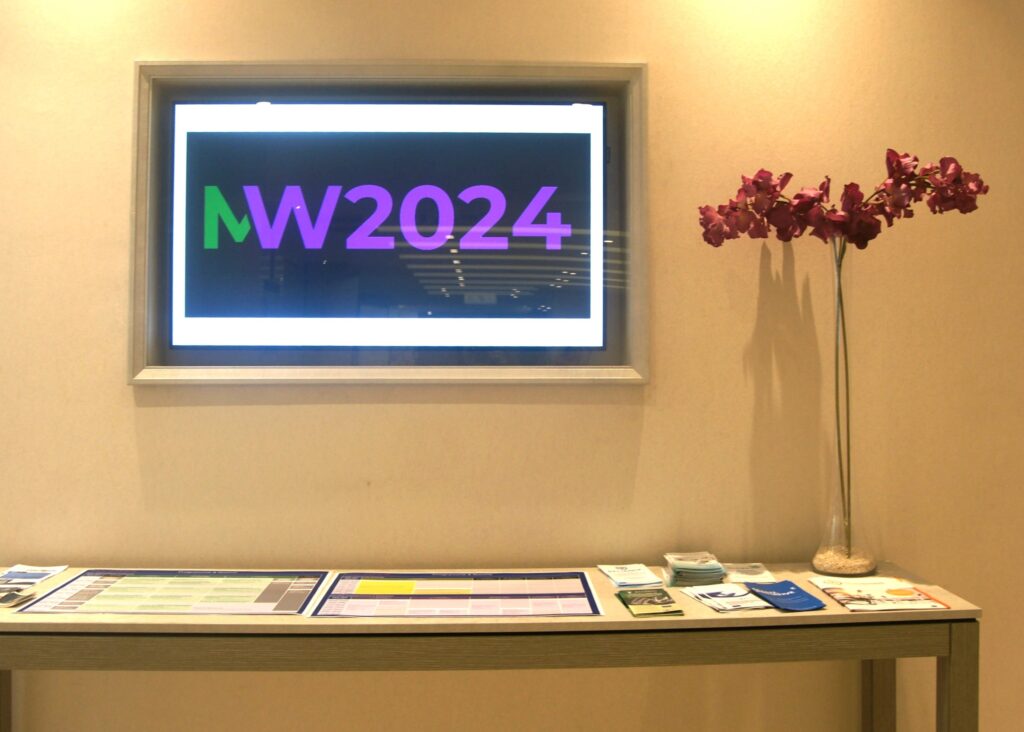
MaterialsWeek 2024 brought together numerous small and large Research and Innovation (R&I) communities that are driving advances in materials innovation manifested across diverse value chains and industrial markets.
Networking
PINK, as one of the organising projects, added one satellite workshop to the overall conference programme, a networking event with all the projects funded under the HORIZON-CL4-2023-RESILIENCE-01-21/22/23 calls co-organised by the PINK coordinator Thomas Exner (7P9), Emma Strömberg (representing the IRISS project) and Philippe Jacques (representing EMIRI and AMI2030).
Starting with the coordinators, partners of all projects attending MaterialsWeek were invited to the networking event taking place on Monday, 17 June 2024. In this way, almost all 12 projects funded under the RESILIENCE-01-21/22/23 call topics were represented. To set the scene, presentations from AMI2023, IRISS, the Partnership for the Assessment of Risks from Chemicals (PARC) and the planned Raw Materials Partnership gave an insight into their networking and outreach activities as well as presenting future objectives of European Safe-and-Sustainable-by-Design (SSbD) for chemicals, raw and advanced materials innovation. This was followed by a tour-de-table and a round-table discussion on topics for future collaboration between the projects. Areas identified were joint dissemination and training actions including raising awareness in the general public of the importance of SSbD, aligning life cycle assessment (LCA) and especially social LCA criteria within and across chemical / material groups, and the omnipresent issue of data interoperability.

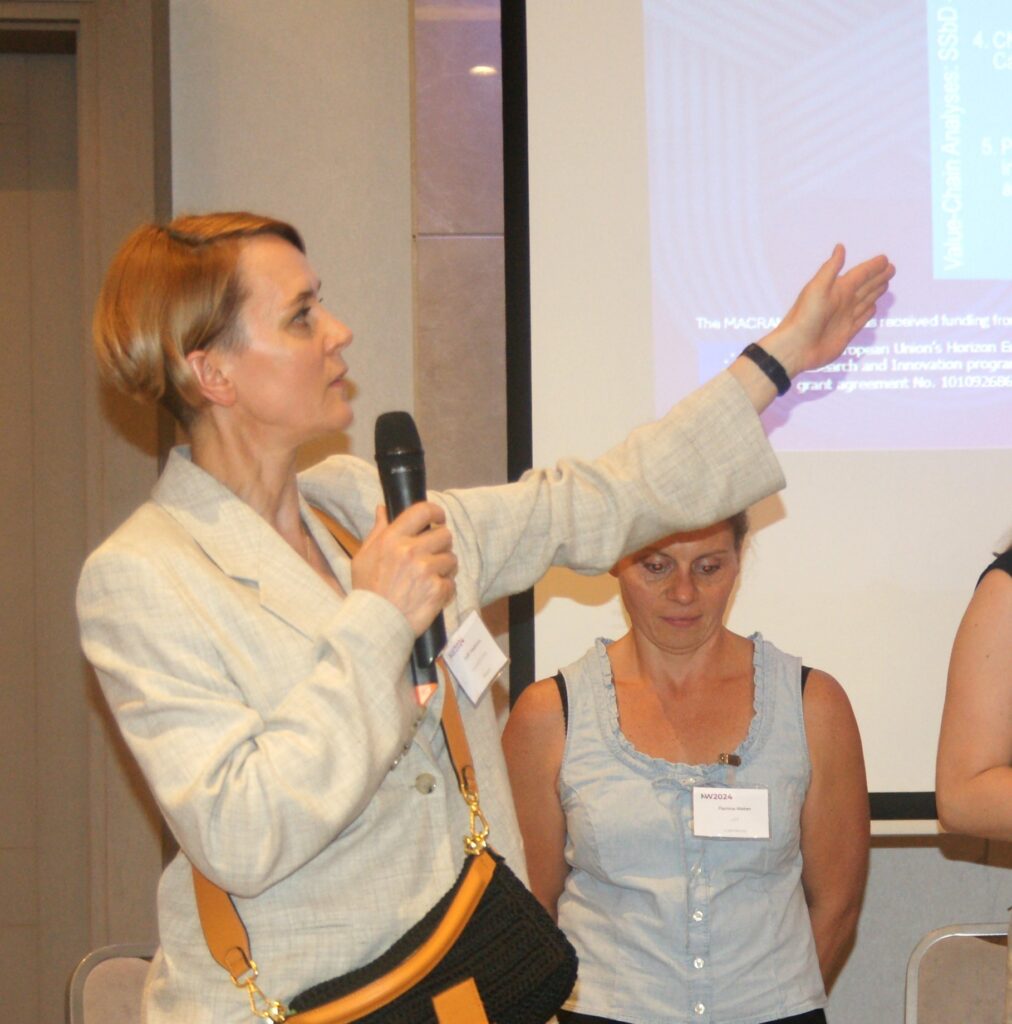
The networking continued throughout the conference during the official and social events including a session organised by the DigiPass CSA, in which each project had the chance to introduce itself either with an oral presentation or via a poster with a pitch talk. PINK was and will continue to be a driving force in bringing the projects together and fostering collaboration by creating and leading task forces and identifying ways for improving knowledge exchange. If you are part of an SSbD-related project, stay tuned for the next virtual networking meeting within the coming months, which is planned to also include representatives from the new HORIZON-CL4-2024-RESILIENCE-01-24 innovation actions.
Training
MaterialsWeek 2024 also represented a highly active platform for training initiatives on relevant topics across the entire materials safety and sustainability community. Martin Himly from PINK partner PLUS and Chair of the EU NanoSafety Cluster WG Education, Training, Communication took the lead to fit activities into the programme and make them a valuable experience for everyone.
Two standardisation-related methods trainings were offered by colleagues from the MACRAME, NanoHarmony, ACCORDs, NanoMesure, and Graphene Flagship projects:
How to expand the use of your test method? Validation is key towards standardisation
Standardisation needs for regulatory testing of graphene and related 2D materials
In both events, the focus was on identifying specific issues in materials science innovations, as they may need to be translated into regulatory requirements and/or require development or adjustment of standardised and harmonised test methods. The training informed about different standardisation organisations (e.g. ISO, CEN, OECD) and the processes towards development and validation to produce an accepted standard. Further, participants discussed how to validate methods and protocols with the aim of obtaining widely accepted standards and trustworthy test results. Another focus was on the importance of interlaboratory comparisons. Finally, the training highlighted incentives and ways of increasing engagement of scientists into standardisation activities.

The MSCA Doctoral Network project PlasticUnderground presented two transferable skills sessions that were open to all early career researchers:
Public engagement through citizen science and science communication
Participants learned how researchers can effectively engage and deeply involve members of the public in their research; Participants mastered the skills required to communicate science to all stakeholders of society with OPEN DATA capabilities.
Modelling Micro- and nano-plastics (MnP) fate and transport in the subsurface
The speakers provided introductions to the fundamental principles of conceptualising, designing, and developing models for simulating micro-nanoplastics (MnP) fate and transport in soil and groundwater aquifers. The presented mathematical methods could be applied hands-on for particle tracking and transport modelling in porous media, including reactive transport and particle degradation.
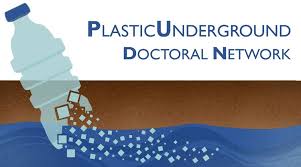
Together with PARC’s FAIR Data activities, the team from the PINK project endeavoured to promote data & model FAIRness (Findability, Accessibility, Interoperability, Re-usability) by offering a dedicated training to support researchers to make their data FAIR.
Data & Tool FAIRness Competition & Award
The training was aimed at researchers at all levels, interested in gaining more citations on their publications or in finding novel collaborations. The MaterialsWeek Data & Model FAIRness Award, which was sponsored by the PARC project, aimed to recognize and reward those who demonstrate the FAIR principles in their work. In the training session adherent to the award participants learned how to FAIRify their research, derive a FAIRification score and understand the criteria for award nomination, gaining the ability to FAIRify not only data but also models and tools thus enhancing the re-usability of both.
The PINK team further offered an industry-focused SSbD-integrative exploration of established approaches to identifying, prioritising, and operating the process of replacing substances of concern:
Integrate & Balance SSbD Categories from Industry Perspective
Emphasis was put on the scoping phase during which the requirements for replacement are identified, and the limitations for the changes possible and trade-offs acceptable for the company must be defined. Aspects in the different categories (i.e., functional performance, health, environment, social, and economic sustainability) need to be agglomerated in a customised manner, and run through a weighting procedure in relation to their expected impact. The topic of data availability and quality was elaborated. The approach recommended by the EU-SSbD Framework was evaluated from different perspectives, including the Cefic view and through specific industrial cases.
Via the concept of use maps the team walked ahead from safety assessment and balancing categories within industry reach (“cradle to gate”) towards a more holistic view, integrating the entire life cycle (“cradle to grave”).
A final PINK training focused on sustainability:
Getting YOUR hands on Life Cycle Assessment
After an introduction to the basic principles of LCA, and a broader discussion of data inventory-related limitations and future challenges, the training put focus on Prospective and Anticipatory LCA, methods that aim to investigate how a current (often immature) technology will evolve in a future time step while anticipating an increasing readiness level of the technology. Besides the clarification of these concepts, the interdisciplinary PINK team provided hints on the use of machine learning and deep learning techniques for anticipatory LCA of new chemicals and products.


